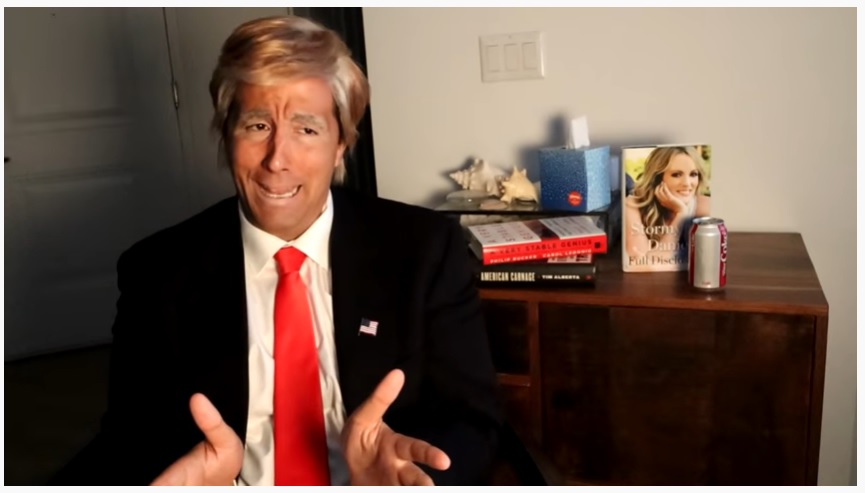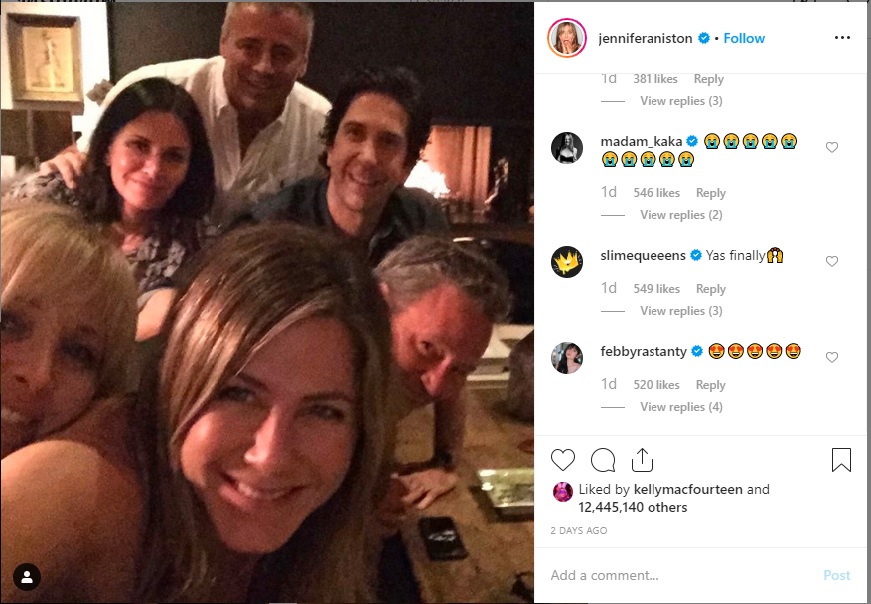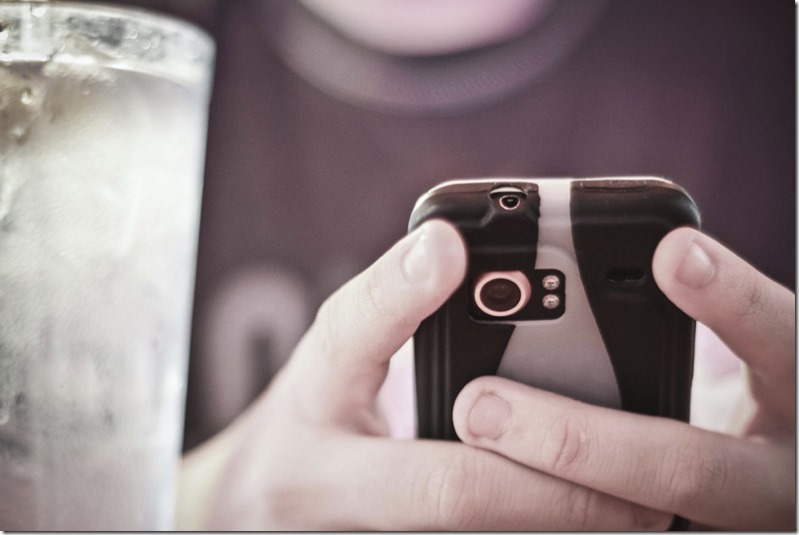Social Media: Bette Midler, Punching Down, and a Backlash
From a distance, the tweet probably seemed innocuous enough. Singer and actress Bette Midler, probably without thinking much about it, sent her 1.8 million Twitter followers a photo of three young women looking at their cell phones while sitting on a museum bench.
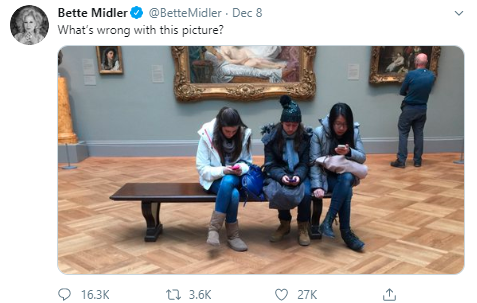
But when you look closer, several questions begin to arise. Were those women looking at an app that told them more about the artwork? Were they checking their messages after several hours of exploring the museum? And even if they were simply bored by the art and more interested in their Instagram feeds, should a celebrity with a massive online following be using her platform to shame people whose “crime” was benign, at best?
The Divine Miss M suddenly found that her shaming effort had a boomerang effect. More than 16,000 replies followed her original tweet. Rather than being heralded as the wind beneath her wings, she was seen as the person worthy of shame.





It’s not the first time that a person seen as punching down became the target of online invective. In May, after author Natasha Tynes tweeted a photo of an employee of the Washington, D.C. Metro system eating a messy meal on one of its trains (the signs make clear eating on Metro is a no-no), she was called out by New York Magazine and Huffington Post contributor Yashar Ali, who has close to a half million Twitter followers.
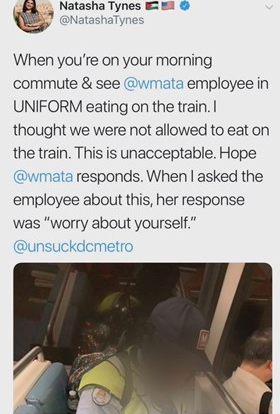
Screen shot via Twitter; blurred image via WUSA9
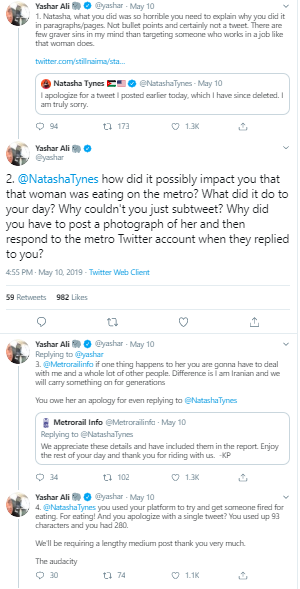
As a result of the furor, Ms. Tynes lost her book contract. Tynes claims she had to leave the country and had suicidal thoughts due to the backlash. (Whether Ali was right to put someone far less influential on full blast is also a question worthy of consideration.)
As a general rule, it’s a good practice to avoid shaming unknowing people, particularly if the perceived infraction is minor, features ordinary people, and is devoid of context.
That general rule leaves room for truly antisocial behavior committed by ruthless people. For example, when a New York attorney was caught on video launching a racist tirade against restaurant workers, he was rightly called out for his actions – and penalized with brutal reviews on his online platforms. In that case, he was seen as the bully punching down while the person who took the video was viewed as performing a public service.
My advice? Don’t tweet photos of a person committing (what you perceive to be) a minor infraction. If you must, describe the behavior in a text-only tweet instead. And if you feel compelled to take a photo, at least obscure the faces of the so-called offenders to preserve their privacy – and your reputation.
